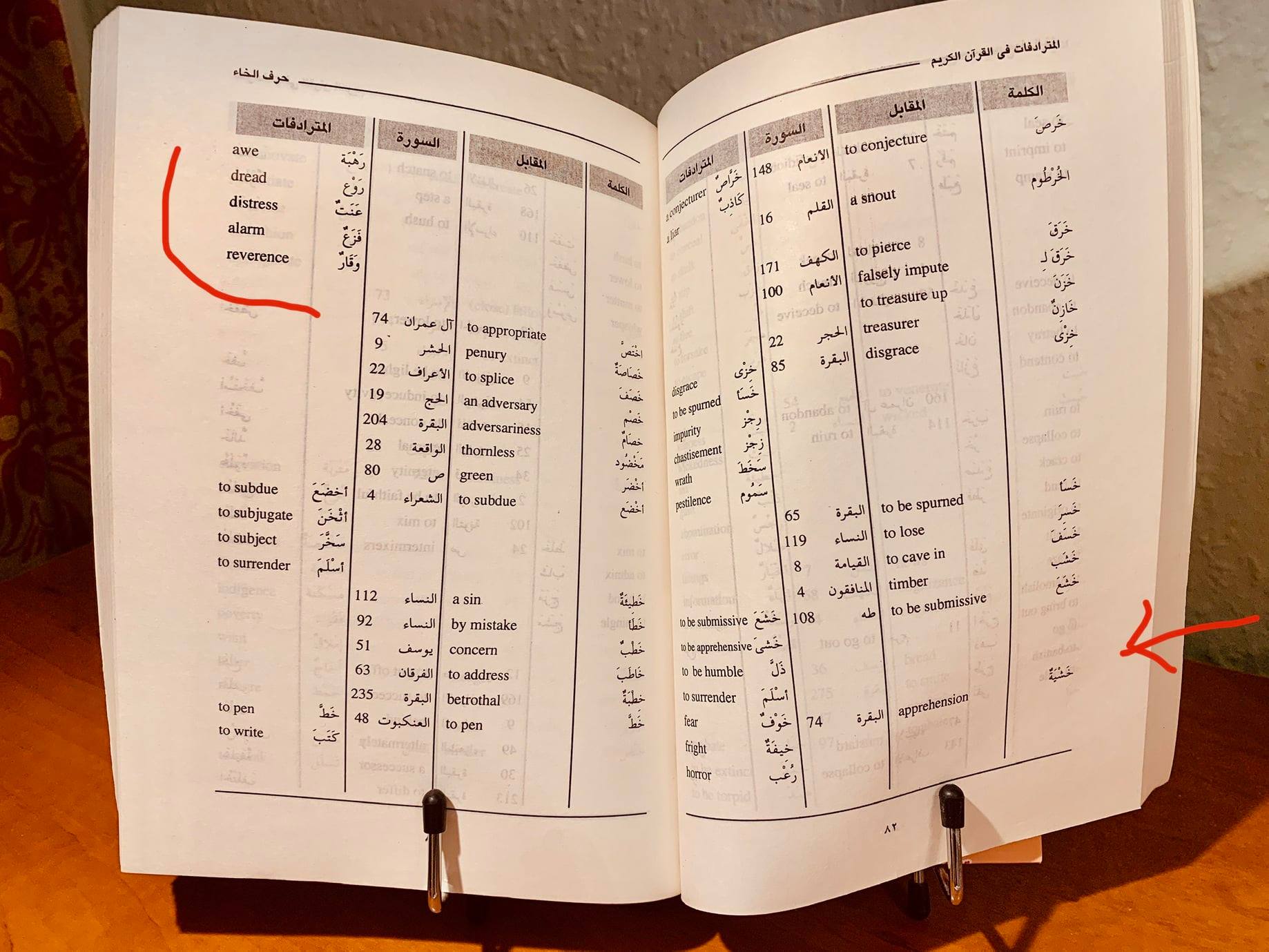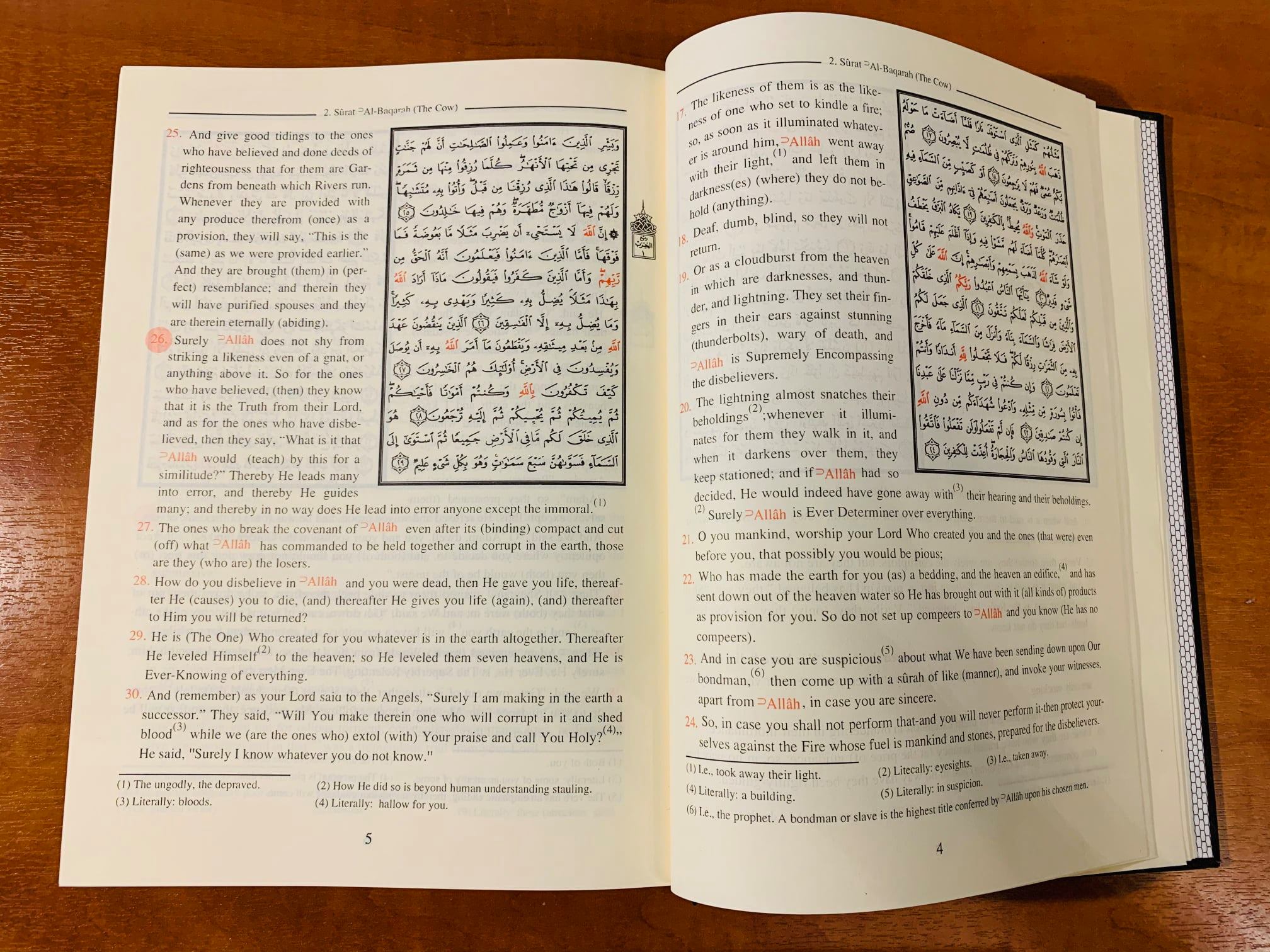Since the days when they debated the validity of translating the Qur’an, scholars of Egypt’s Al-Azhar University have contributed some translations of their own. One is M.M. Ghali’s “Towards Understanding the Ever-Glorious Qur’an” (1st edn. 1997).
Muhammad Mahmud Ghali (1920-2016) was Professor of Linguistics & Islamic Studies, and founder of Al-Azhar’s Faculty of Languages & Translation. Pictured above is the 3rd edition which was revised by two fellow Arab professors (men) and a native English speaking editor (woman).
Ghali authored at least 16 books, one of which has a direct relationship with his Qur’an translation: “Synonyms in the Ever-Glorious Qur’an” (Al-Mutarādifāt fī al-Qur’ān al-Majīd). Its basic premise is that nuances between Arabic words should be reflected in the target language. In the attached example page, note the various words meaning “fear” and similar.
We will see how he applies these distinctions in the verse 4:9 which contains the words khashyah, khawf and taqwā. Some translators rendered all as “fear” (Saheeh International). Indeed, Yusuf Ali and Muhsin Khan each combined the first two and called them “the same fear”! Ghali has: “And let the ones be apprehensive (of Allah), who, if ever they left behind them weak offspring, would fear (poverty) for them. So let them be pious to Allah…”
https://www.islamawakened.com/quran/4/9/
In his introduction, Ghali praises the prior efforts of Pickthall, Arberry and Yusuf Ali. His own “modest attempt at an accurate linguistic rendering” aimed at precision w.r.t. synonyms and the Qur’an’s “elaborate morphological and syntactic system”. The Arabic text is incorporated, though frustratingly (in this edition) the pages are reversed from their positions in an ordinary muṣḥaf. Concise footnotes are provided. The edition, though revised, is marred by regular typos. The translator’s strategy has come at the expense of English fluency, but may be useful to students of Arabic who are interested in specific aspects of its semantics and syntax of the Qur’an.
Sohaib Saeed


